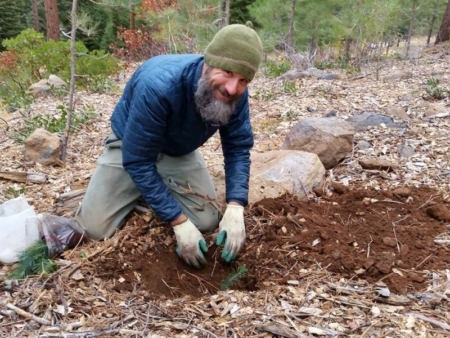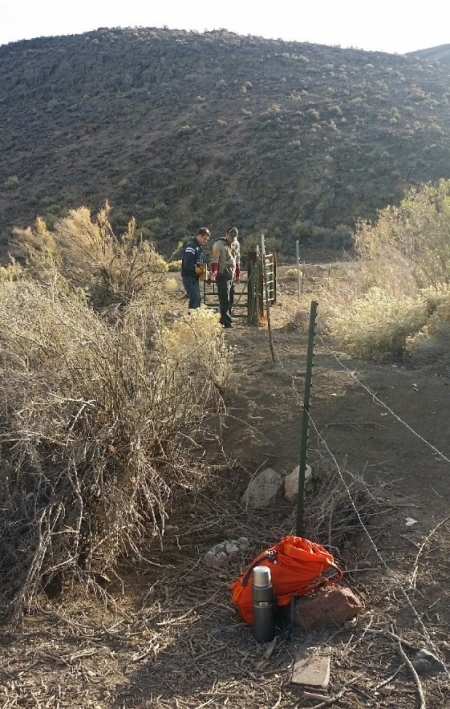Our Shipping Employees Volunteer with Environmental Non-Profits

This summer, the Patagonia Shipping Department in Reno, Nevada helped two local environmental non-profits. We were able to work for the Hidden Valley Wild Horse Protection Fund and the Sugar Pine Foundation. This was made possible by the environmental internship program Patagonia offers to every employee.
Hidden Valley Wild Horse Protection Fund (HVWHPF) is a group based on the southern edge of Reno. Their mission is “to protect and preserve the wild horses that settle in the foothills surrounding Hidden Valley.” Work includes rescuing and protecting horses that have been captured and are for sale at auction, often to slaughterhouses, and helping to feed these iconic wild animals of the West during the winter months. The wild horses that roam the West play an important role, grazing vast expanses of the desert which, in turn, can help control the proliferation of devastating wild fires.
Our work with the HVWHPF focused on building and restoring fences that help prevent the wild horses from straying onto private property or major roads. When the horses do stray, the Nevada Department of Agriculture permanently removes them from their rangeland—forever gone from the wild and free life they once knew. If local non-profits are not able to find placement for them, those horses are at risk of slaughter. By helping to ensure the integrity of the fencing we were able to help keep the horses wild.
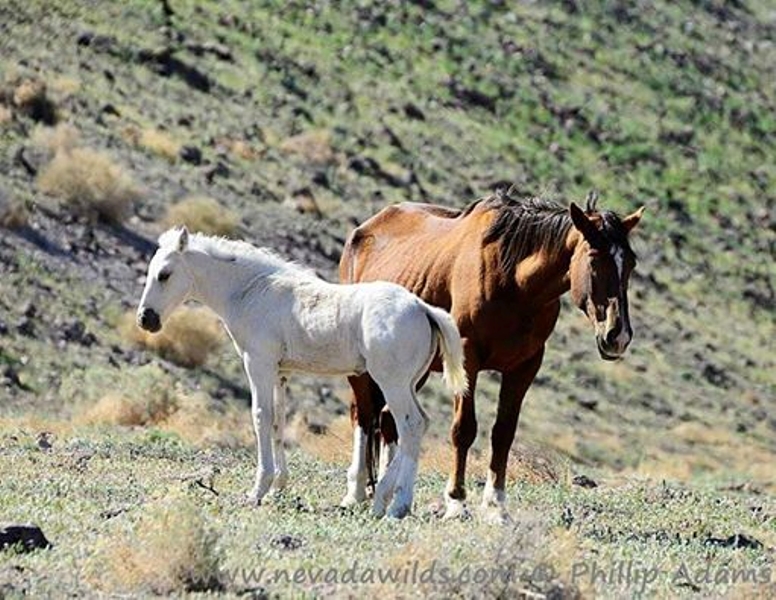
A couple of the beautiful wild horses we’re working to protect. Photo: Phillip Adams
Building fences for the HVWHPF.
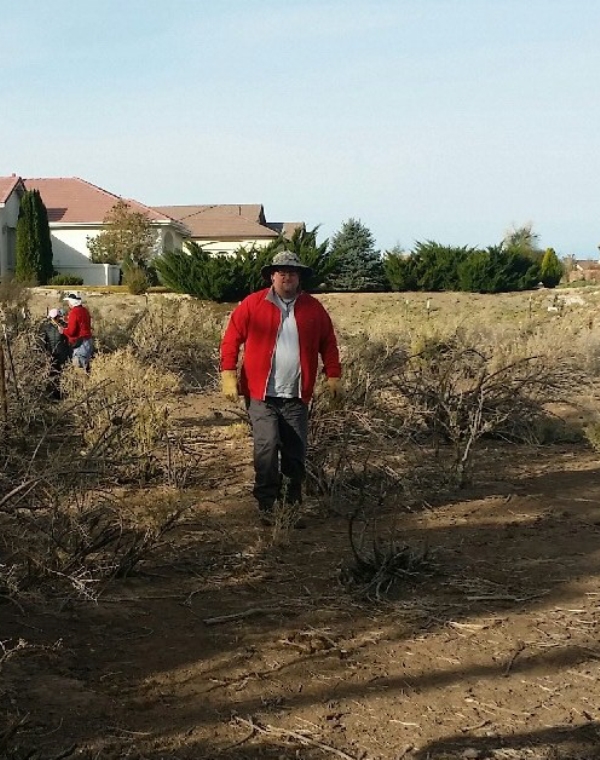
Derek helps with the building of some new fences.
Sugar Pine Foundation (SPF), who work in the stunningly beautiful Tahoe Basin, endeavor to restore the Sugar Pine population that has been affected by a combination of logging, fire suppression and invasive pathogens, in particular the blister rust fungus. SPF finds and collects the cones of fungus-resistant sugar pines, nurtures the seedlings and plants the trees.
These last few years have been extremely dry in the Sierra and a low snowpack has contributed to the ongoing draught. Over the last couple of years, during spring and summer, Patagonia employees have helped water the thirsty young trees planted by SPF. In the autumn, we planted over 200 sugar pine seedlings. The SPF has been very successful in reestablishing this particular pine species in the region, but we still have a long way to go to repopulate Tahoe’s forests with historical levels of sugar pine.
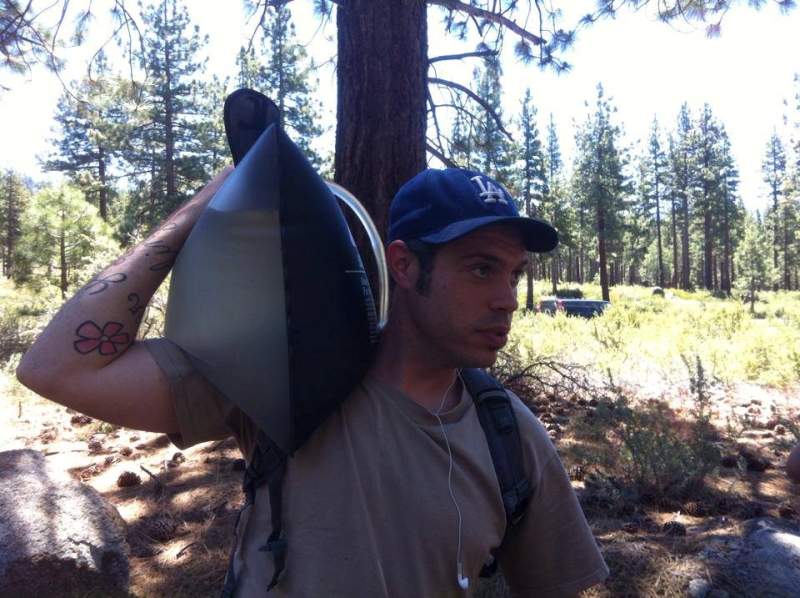 Adam on a spring mission to water the parched yearlings after a very dry winter in the Sierra.
Adam on a spring mission to water the parched yearlings after a very dry winter in the Sierra.
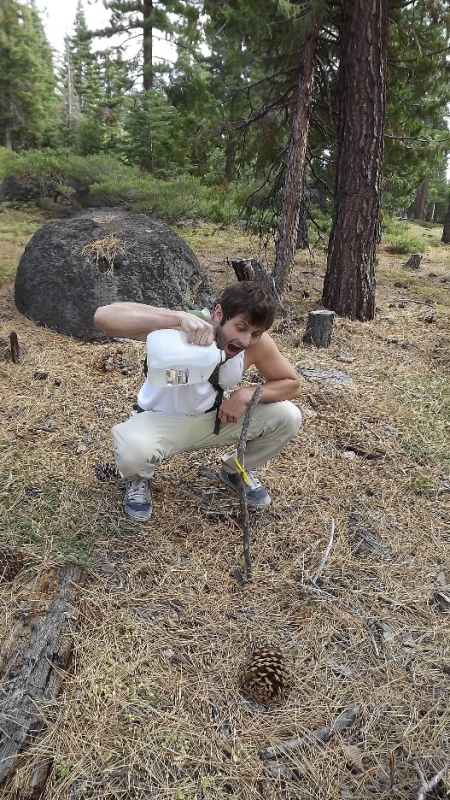
Sean is super stoked to be nurturing young Sugar Pines.
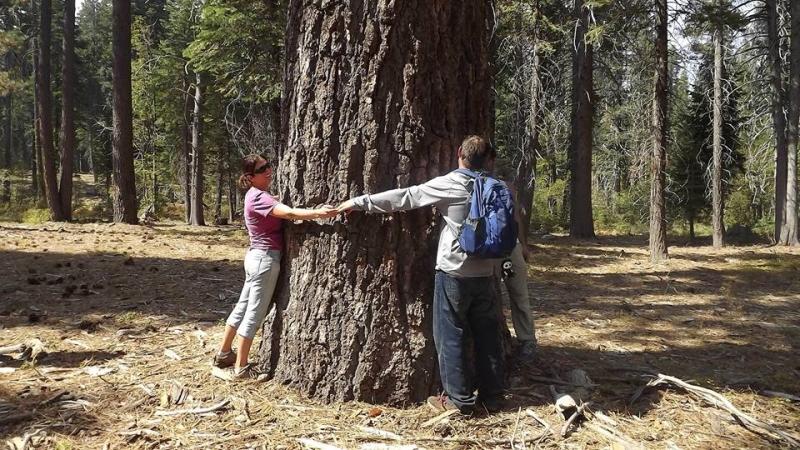 I guess we’re all just a bunch of tree huggers!
I guess we’re all just a bunch of tree huggers!
Over the course of the spring, summer and fall of this year, the Patagonia Shipping Department contributed an impressive 480 hours to these two deserving non-profits. The programs were extremely popular, with more than 80% of the department’s employees participating. Benefiting our local region was the objective, but the internships also helped develop relationships between employees.
On behalf of the department, I would like to thank everyone who helped make this internship program such a resounding success: The Patagonia Internship Committee for granting our application, every volunteer from both the HVWHPF and SPF who took the time to teach us the skills we needed to contribute—especially Maria and Shannon—and to our Patagonia colleagues in other departments who offered hints and advice for setting up the internship. I would also like to thank every single participant and the shipping manager, Lloyd Stradley, for their unwavering support and enthusiasm for the project.
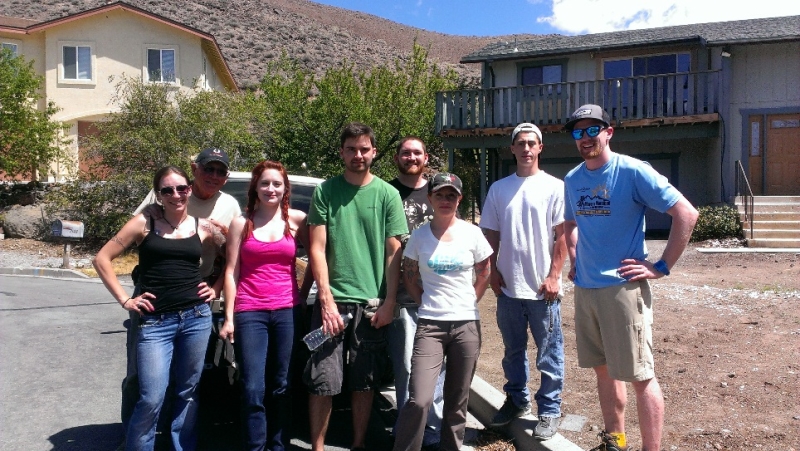 Our first internship group of the year meets HVWHPF volunteer Buck (back left).
Our first internship group of the year meets HVWHPF volunteer Buck (back left).
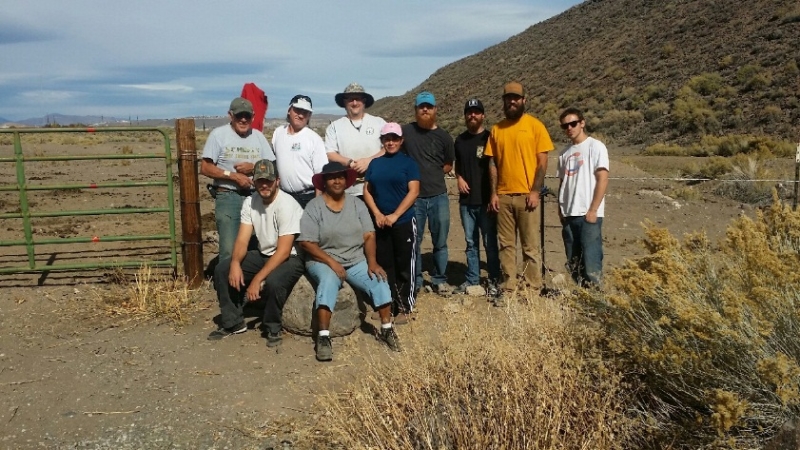 Another one of our volunteer groups with Buck from the HVWHPF.
Another one of our volunteer groups with Buck from the HVWHPF.
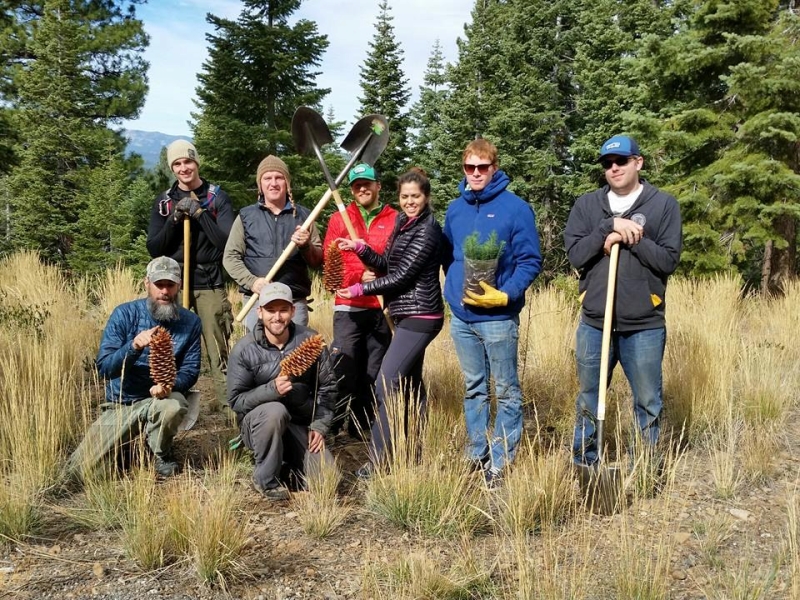 Our final internship group of the year planted with the SPF before winter arrived.
Our final internship group of the year planted with the SPF before winter arrived.
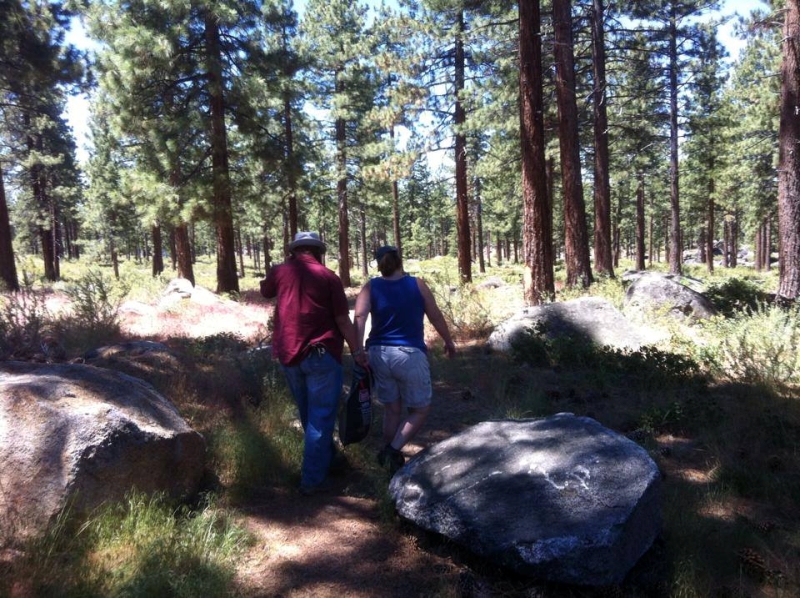 Working together to improve our community.
Working together to improve our community.
To learn more about these two non-profit groups and support their work, visit Hidden Valley Wild Horse Protection Fund and Sugar Pine Foundation.
